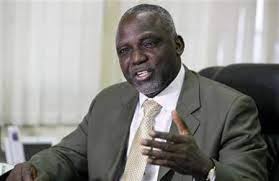As Nigeria continues to promote energy efficiency with natural gas as key driver to achieve her energy transition goals, key stakeholders in the sector would be discussing prospects of the country’s huge gas resources in actualizing set targets at the scheduled 2025 Oriental News Nigeria national conference at Radisson Blu, GRA Ikeja Lagos and chaired by former Power Minister, Prof Bart Nnaji who is also chairman of the indigenous power company, Geometric Power Limited (GPL).
Other key agencies of government have also signified their acceptance to participate where the Nigerian Liquified Natural Gas Limited (NLNG) as keynote speaker at the conference would highlight benefits of gas as the country’s transition energy source. STANMEG Communications, publishers of Oriental News Nigeria Online, one of Nigeria’s most influential Online platforms confirms NLNG as keynote speaker at its 2025 National Conference on Sustaining Gas Utilization Towards Achieving Nigeria’s Energy Security.
The main Theme of the conference is “Integrating Nigeria’s Gas Potentials Into Strategic Energy Transition Initiatives”
Meeting Nigeria’s domestic energy needs remains one of the most significant challenges to sustainable development and economic growth. Only half of Nigeria’s 200 million citizens currently have access to energy, and with the population set to double by 2050 universal access is a huge challenge.
Nigeria has proposed to ramp up gas production, utilization and export, with the aims of supporting industrialization, boosting domestic energy supply (for power, cooking and transport), and increasing government revenues.
Whether ramping up gas utilization is feasible, or indeed the appropriate approach to achieving Nigeria’s energy supply and economic ambitions, is uncertain.
Every year Oriental News Nigeria, undoubtedly one of Nigeria’s most influential and reliable news channels brings stakeholders together to discuss pivotal topics around the economy.
Being the 4th in the series, the 2025 Oriental News Nigeria conference is bringing key industry figures, experts and policy analysts to evaluate various aspects of natural gas initiatives put together to drive the national economy.
Government is quite aware that what is certain is that global pressure to transition away to cleaner energies and defund fossil fuel projects complicates the process of realizing that goal and could lead to wasted investments that jeopardize the economic and energy security of Nigerians in the future.
But weak legal and regulatory frameworks, big infrastructure gaps, a non-cost-reflective pricing regime and host community conflicts have made the domestic gas sector uncompetitive and unattractive to investors. This, in turn, has left gas reserves underexploited, especially more expensive non-associated gas which represents half of Nigeria’s reserves.
Implementation of reforms by successive governments through the 2008 Gas Master Plan the (GMP), the 2017 National Gas Policy (NGP) and other instruments have proven slow. With the passage of the Petroleum Industry Act 2021, the legal, fiscal and regulatory framework of the gas sector has been strengthened with the creation of dedicated regulators, a dedicated minister, provision of third party access to infrastructure, and other improvements. But many gaps remain.






































